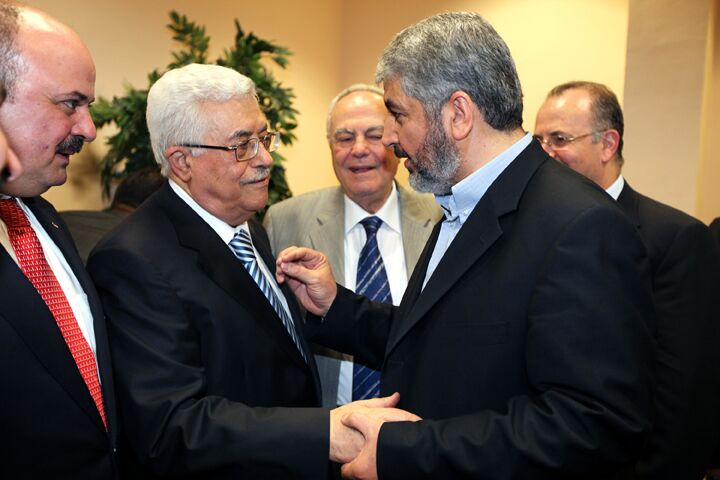
Hamas and Fatah Sign Reconciliation Deal
Hamas and Fatah signed a unity agreement in Cairo on Wednesday. Under the direction of Egypt, the two groups agreed last week to reconcile after a four-year split.
Representatives of Hamas and Fatah will now begin negotiations on how to implement the details of the accord, including establishing a unity government, conducting presidential and parliamentary elections, and combining security forces.
There is no provision in the deal for negotiations with Israel—or, at this point, even recognition of Israel. Leading up to the signing, Hamas showed it stands by its commitment to destroy Israel—as outlined in its official charter—with officials saying they would not “recognize Israel” or “renounce violence.”
While there is skepticism among officials and pundits over whether the deal will last, it is likely that such opinions underestimate the common hatred for Israel that underlies the reconciliation, as well as the influence of an Iranian-aligned Egypt.
Hamas’s motivation was clear when the group’s political leader, Khaled Mashaal, stated at the Cairo ceremony: “Our common enemy is Israel. Israel must be fought both with force and through diplomacy.”
As for Palestinian Authority President Mahmoud Abbas, he declared: “Hamas are our brothers. They are our family. They are a part of our people. We may differ. But we agree a lot.”
In addition, as Courcy’s Intelligence Brief brings out, Abbas knows that the attempt to gain UN General Assembly recognition of a Palestinian state in September “would be undermined if opponents were able to say that the PA is not in control of the Gaza Strip” (May 4). As for Hamas, it “may be feeling vulnerable because of events in Syria, where it is by no means certain that President Assad will survive” (ibid.).
Still, the fact that Fatah has reached out to Hamas and is willing for it to reenter the Palestinian government shows the growing strength of Hamas. “This agreement shows that Fatah has lost power and that it is willing to negotiate with a terrorist organization,” Guy Bechor, Arab affairs expert at Israel’s Interdisciplinary Center, told The Israel Project.
Columnist Stephen Flurry pointed to this trend back in 2009, saying that Hamas’s victory in the 2008-09 Gaza war would mean Hamas would “remain at the front line of the Palestinian struggle against Israel, garner more popular support throughout the Arab world, receive international legitimacy and enjoy the rapid advancement of its power and influence, both politically and militarily.”
The agreement between the Islamist terrorist group Hamas—which on Monday condemned the killing of Osama bin Laden—and Fatah, which dominates the Palestinian Authority in the West Bank, can only increase the danger to Israel.
Israeli Foreign Minister Avigdor Lieberman declared what the deal would mean for the Jewish state: “This is the situation: Hundreds of armed terrorists will flood Judea and Samaria. I don’t think we need to go into details of what this means. … Hamas is a terror group.”
Events are building toward a prophesied clash between the Jews and the Palestinians. Read Jerusalem in Prophecy for more on where this will lead.
